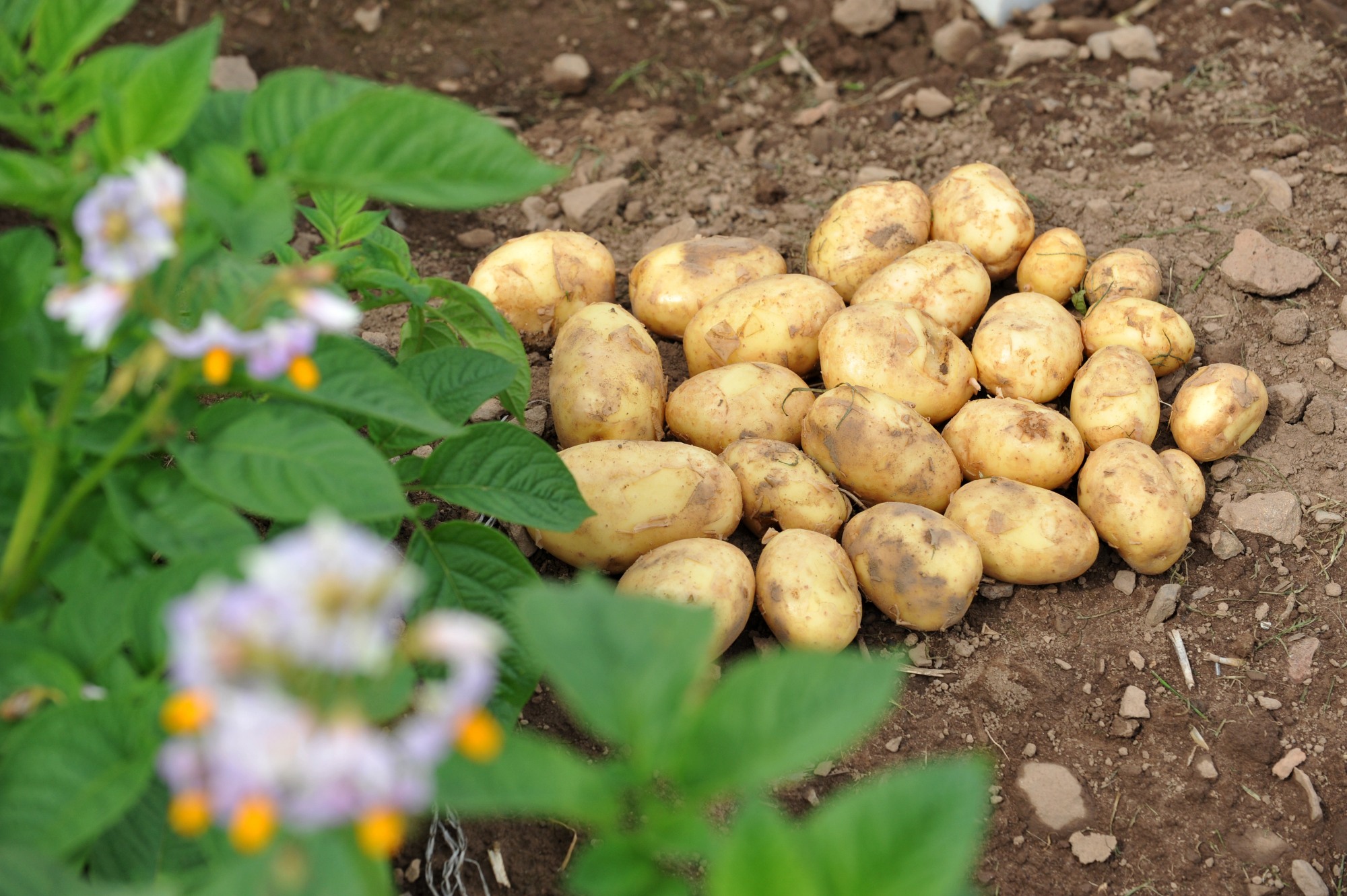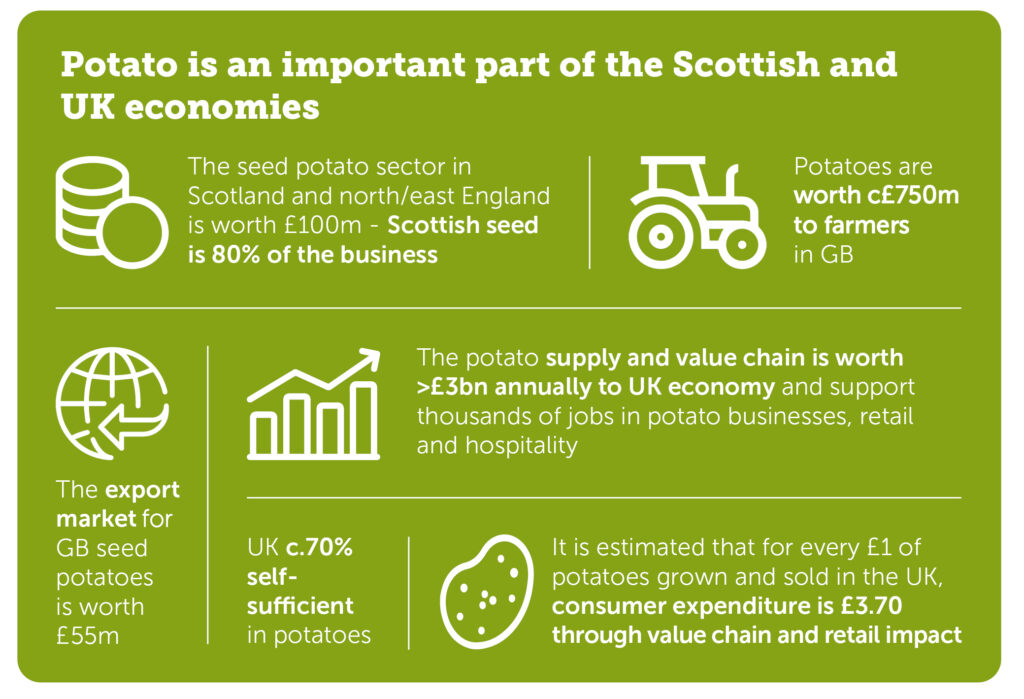National Potato Innovation Centre
The National Potato Innovation Centre (NPIC) based at The James Hutton Institute works in partnership with stakeholders, academic, industry and government in the UK and beyond to carry out scientific research to future proof the potato industry and support economic resilience and growth.
We do this through innovation, generating new findings and innovating products. We are currently planning a state-of-the-art innovation centre to support the work of NPIC.

Food security is a global issue
Potato is a major crop in the UK and throughout Europe and is key in government strategies worldwide (including in China, India and Sub-Saharan Africa) to attain food security by ensuring a reliable and sustainable supply of healthy food.
Potato is a globally important crop
COST:
IT IS ESTIMATED THAT THE COST OF BUILDING AND EQUIPPING NPIC WILL BE BETWEEN £40M – £50M.
Hear from the NPIC Director

Listen to Professor Ian Toth, Director of the NPIC, on the Hutton Highlights Podcast, from 9:50 >>
International Day of Potato seminar
Outcomes and impact of NPIC
World class research in potato science supporting innovation in supply and value chains will lead to:
- New businesses and start-ups.
- Training and skills development.
- New breeding pipelines for rapid development and deployment of new varieties for sustainable systems.
- New technologies for efficient, net zero production with less waste.
- High value functional foods and novel natural products including, non-animal based proteins, potato-based plastics and biomolecules (for example vaccines).
- A focal point for potato research across the UK and globally and an aligned and informed stakeholder community.
Economic benefit in the form of:
- New international collaborations and underpinning global food security and nutrition with global economic benefits.
- Reputation as a key player in food security in the UK and globally.
- New facilities and expertise brought to Tayside.
- Complementary facilities and critical mass in food and drink available to all sectors of the industry.
- A strong creative cluster for food and drink innovation in the UK attracting inward investment for jobs and new businesses.
A strategic outline case and high-level economic analysis demonstrate a clear need for the project, and a strong economic case with a potential benefit cost ratio (BCR) of over 4.0.

